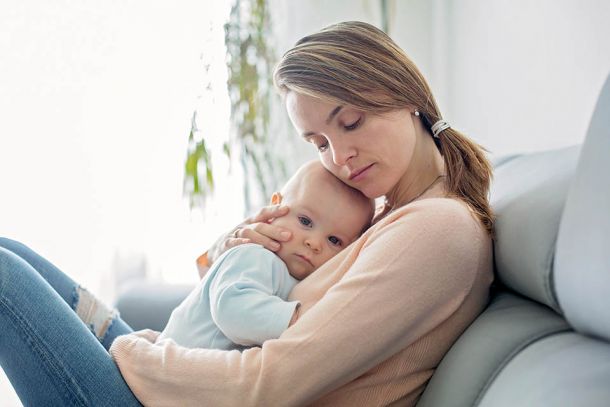Always trust your instinct - if you are worried about your baby, go to the doctor.

Knowing when your baby is sick and when to seek medical attention can be difficult for new parents. You may fear the doctor will think you are foolish or overly paranoid for bringing your baby in if it turns out there is nothing wrong. The only thing you need to remember is – if you are in doubt about your baby’s health, go get it checked out. No doctor should make you feel foolish for bringing your child to see them if you are concerned.
Watch out for the following common symptoms. If your baby is experiencing any of these, you will need to see your doctor:
- Drowsiness - your baby is less alert and aware of his/her environment.
- Decreased activity or lethargy – your baby moves less and may be limp.
- Breathing difficulty – coughing, wheezing, breathing quickly or problems breathing.
- Poor circulation – baby is pale, cold, bluish in color.
- Poor feeding – not feeding like they normally do, refusing to eat.
- Poor urine output - less than 4 wet diapers/day.
- Fever – if your baby is under 3 months you should see a doctor with every fever. If your baby is over 3 months, see a doctor only if the fever lasts longer than 2 days, as long as the baby is otherwise looking well.
You will need to see a doctor right away if any of the following happen:
- Your baby is vomiting green fluid
- Your baby has a seizure or convulsion
- Very high temperature
- Your baby stops breathing or turns blue
- Your baby has a lump in the groin area
Commonly Asked Questions
Q: How should I take my child’s temperature?
A: Children under the age of 2 should have their temperatures taken with a digital thermometer by placing it under their armpit. Ear thermometers are not accurate under two years of age but may be used as your child gets older. Taking a child’s temperature orally can begin whenever the child will hold their lips over the thermometer while you place it under their tongue.
Q: What is a normal temperature and when should I be worried about a temperature?
A: Normal temperature is between 36.4 and 37.5C (96.8 - 99.5F) orally. The armpit is approximately 1C lower than the mouth or ear. Your child is considered to have a temperature if it exceeds 37.5C (98.6F) in the armpit or 37.8C (100.04F) by mouth or ear.
